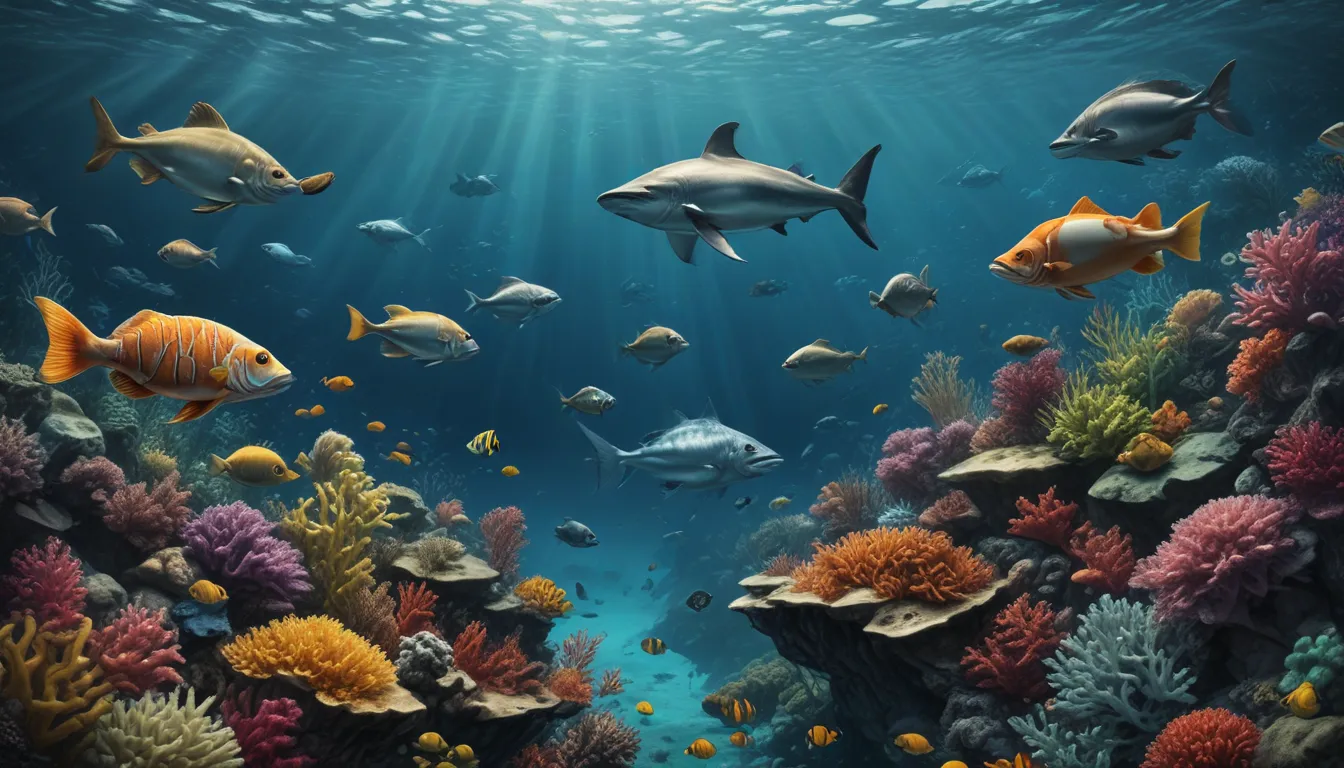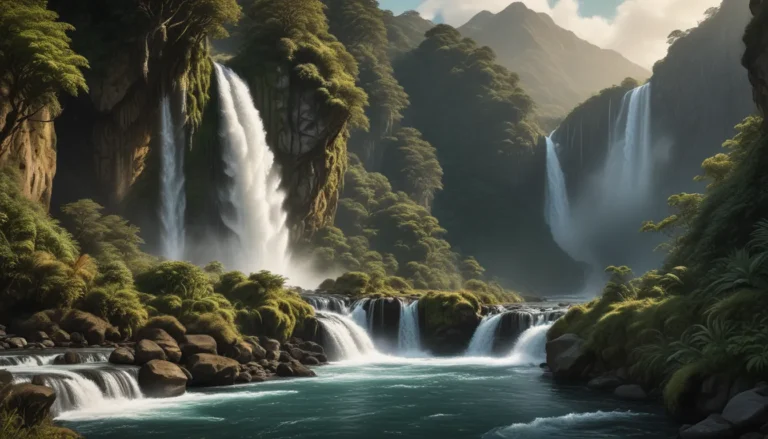The pictures we use in our articles might not show exactly what the words say. We choose these pictures to make you interested in reading more. The pictures work together with the words but don’t take their place. The words still tell you the important facts.
Welcome to the fascinating world of ocean biodiversity, where millions of species thrive in the vast blue expanse, contributing to the health of our planet in ways we are only beginning to understand. From the intricate ecosystems of coral reefs to the mysterious depths of the Mariana Trench, the oceans hold a wealth of diversity that is both awe-inspiring and essential for our existence. In this article, we will delve into 16 intriguing facts about ocean biodiversity, shedding light on the importance of marine ecosystems and the urgent need for conservation efforts to protect this vital part of our world.
Unlocking the Secrets of Ocean Biodiversity
Ocean biodiversity encompasses a plethora of life forms, ranging from microscopic phytoplankton to massive whales, each playing a unique role in maintaining the balance of marine ecosystems.
- Oceans cover more than 70% of Earth's surface, making them the largest habitat on our planet. Within this vast expanse, an estimated 230,000 known species exist, with scientists believing that over two million marine species may be waiting to be discovered. 2. In the depths of the Mariana Trench, where pressures exceed 1,000 times that of sea level, unique species have adapted to thrive in extreme conditions not found anywhere else on Earth.
Coral Reefs: Guardians of Ocean Life
Coral reefs, often referred to as the "rainforests of the sea," are vital hubs of biodiversity, supporting a myriad of marine species and providing critical benefits to both nature and humanity.
- Despite occupying less than 0.1% of the ocean's surface, coral reefs host around 25% of all marine species, including thousands of fish that sustain billions of people worldwide. 2. These vibrant ecosystems serve as natural barriers, protecting coastlines from erosion and storms, while also contributing significantly to the economy through tourism and fishing industries.
Facing Threats: Challenges to Ocean Biodiversity
Human activities such as pollution, overfishing, and climate change pose significant threats to the delicate balance of marine life and ecosystems.
- Over 8 million tons of plastic enter the oceans annually, posing a threat to marine life through ingestion and entanglement. Microplastics, tiny particles of plastic, have been found in even the deepest parts of the ocean and within the bodies of marine organisms. 2. Rising ocean temperatures and acidification due to climate change are disrupting marine ecosystems, leading to coral bleaching, altered fish migration patterns, and a decline in biodiversity. 3. Overfishing has decimated many fish populations, driving some species to the brink of extinction. Adopting sustainable fishing practices is crucial to preserving marine species and ensuring food security for future generations.
Discoveries and Conservation Milestones
Despite the challenges facing ocean biodiversity, ongoing discoveries and conservation efforts offer hope for the future of our oceans.
- Scientists continue to unveil new marine species each year, expanding our knowledge of ocean life and emphasizing the importance of protecting marine habitats for the survival of unknown species. 2. Marine Protected Areas (MPAs) worldwide aim to conserve marine ecosystems by restricting human activities, allowing marine life to thrive and ecosystems to recover. 3. Innovative technologies such as satellite tracking and DNA sequencing are being utilized to study and protect marine species, aiding in monitoring populations, combating illegal fishing, and understanding the impact of climate change on marine life. 4. Global initiatives like the United Nations' Decade of Ocean Science for Sustainable Development (2021-2030) seek to promote scientific research and international cooperation in addressing ocean health and biodiversity loss.
Taking Action: Individual Responsibility in Protecting Ocean Biodiversity
Every individual has a role to play in safeguarding ocean biodiversity through simple yet impactful actions.
- By reducing plastic use and ensuring proper waste disposal, we can prevent pollution from reaching the oceans. Opting for reusable items and supporting bans on single-use plastics are effective ways to combat plastic pollution. 2. Supporting sustainable seafood choices helps reduce the demand for overfished species. Look for certifications like the Marine Stewardship Council (MSC) when purchasing seafood. 3. Participating in beach cleanups and conservation projects can directly impact local marine environments. Volunteering time or donating to organizations focused on marine conservation can help fund research and protection efforts. 4. Educating ourselves and others about the importance of ocean biodiversity and the threats it faces raises awareness and inspires action. Sharing information through social media, attending workshops, and engaging in community discussions can spread the word. 5. Advocating for policies and regulations that protect marine environments is essential. Contacting elected officials, signing petitions, and participating in public forums can influence decision-making and lead to positive changes for ocean conservation.
Embracing the Beauty of Ocean Life
Ocean biodiversity is a mesmerizing tapestry of life, each species interconnected and dependent on one another for survival. From the microscopic organisms that fuel the food chain to the majestic creatures that roam the depths, the oceans hold a treasure trove of wonders waiting to be explored. Protecting this diversity isn't just about saving marine species; it's about safeguarding the health of our planet as a whole. By valuing and understanding the complexity and beauty of ocean life, we can inspire meaningful actions to ensure its preservation for generations to come. Whether it's reducing plastic waste, supporting sustainable practices, or advocating for marine conservation, every individual effort contributes to the greater mission of protecting our blue planet. Let's dive in together, united in our commitment to preserving the wonders of ocean biodiversity.
Your Feedback Matters
Our dedication to delivering reliable and engaging content drives our mission to provide you with accurate and diverse insights. Each fact shared on our platform is submitted by individuals like you, ensuring a wealth of perspectives and information. Our team of editors meticulously reviews each submission to maintain the highest standards of authenticity and credibility. Explore, learn, and trust in our commitment to quality as we embark on this journey together.






